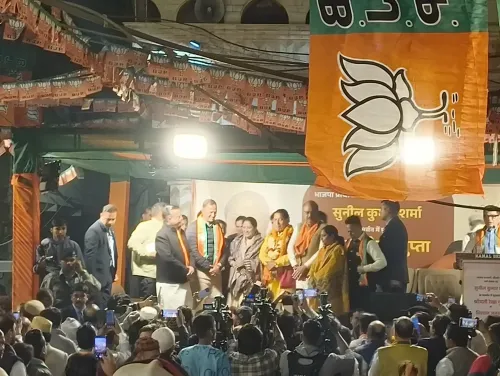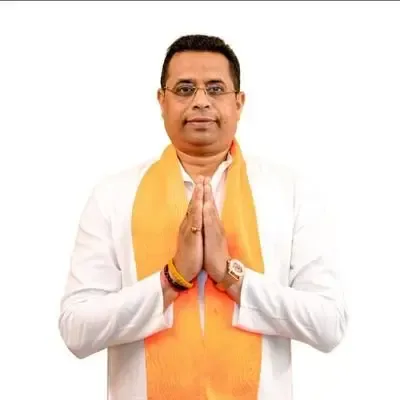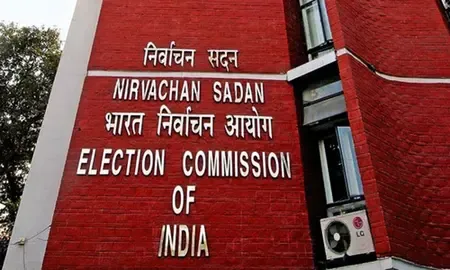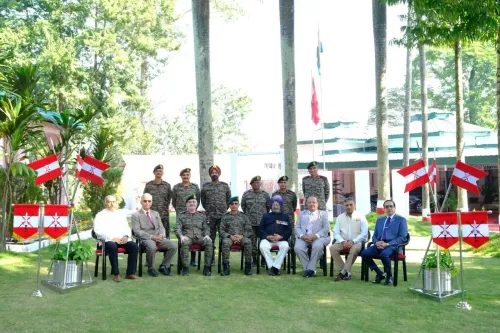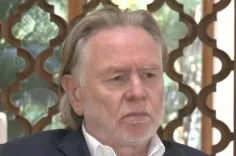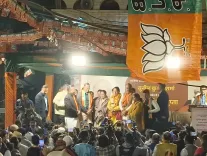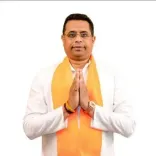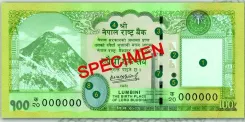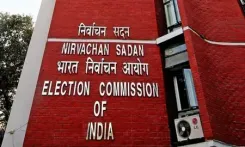Challenges in Legislative Sessions: An Insight by Om Birla
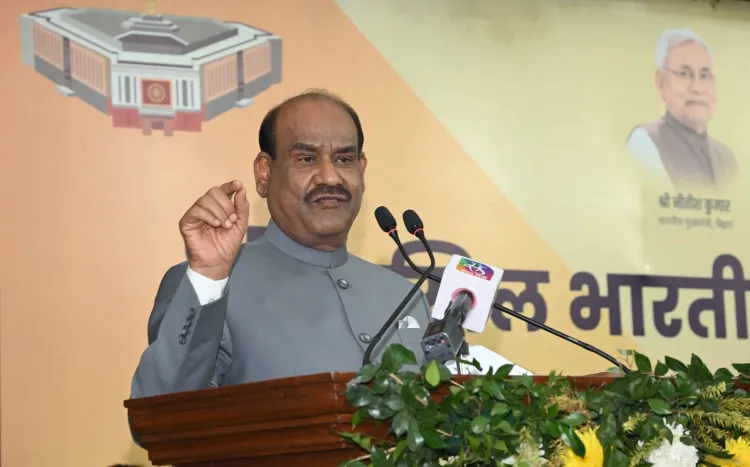
Synopsis
Key Takeaways
- Need for political cooperation to address legislative disruptions.
- Importance of digital integration in legislative processes.
- Call to preserve legislative dignity and productivity.
- Bihar's historical significance in education and governance.
- Resolutions to strengthen democratic institutions.
Patna, Jan 20 (NationPress) Lok Sabha Speaker Om Birla spoke on Monday about the significant challenges and prospects for enhancing parliamentary democracy during the All India Presiding Officers Conference held in Patna.
In his address, Birla stressed the necessity for collaboration among all political factions to tackle the disruptions occurring in legislative sessions, labeling them as a serious concern.
“The practice of entering the Well of the House, creating disorder, and adjourning sessions are pressing issues that need thorough discussion. It is imperative for all parties to unite in resolving this. A decisive course of action must be determined here,” Birla stated during the two-day event.
He called for joint efforts to maintain the dignity and efficiency of legislative bodies.
Birla expressed his contentment with the growing implementation of digital processes in legislative assemblies nationwide.
He remarked: "I am pleased to see that digital work is being carried out in most assemblies. If the workings of the Assembly and Lok Sabha are merged onto a single platform, it will facilitate more productive discussions. Our goal is to achieve One Country, One Legislation by 2025.”
Additionally, Birla raised concerns over the diminishing frequency of Assembly sessions, urging presiding officers to ensure that legislative bodies remain strong and effective.
Reflecting on the legacy of the Indian Constitution, he stated: "After extensive deliberation, Baba Saheb (B.R. Ambedkar) crafted a Constitution that not only directs India’s democracy but also serves as a benchmark for democracies globally. We must reinforce this institution further.”
The Speaker underscored the historical significance of Presiding Officers’ Conferences in molding democratic traditions.
“Many pivotal decisions have emerged from these conferences, both pre and post-independence. Democratic institutions have become more accessible to the populace. We have instituted numerous beneficial traditions and laws that have been vital in fortifying democracy,” he noted.
Om Birla also praised Bihar’s profound legacy of knowledge, spirituality, and political influence.
While addressing the conference, the Lok Sabha Speaker emphasized Bihar’s crucial role in establishing India as a hub of knowledge and inspiration.
“Bihar is the cradle of education and wisdom. Institutions like Nalanda and Vikramshila have illuminated the world with their knowledge. This conference, held on this historic land, will convey a new message to our democratic institutions,” Birla stated.
He paid tribute to notable figures from Bihar, including the first President, Dr. Rajendra Prasad, who was instrumental in framing the Constitution.
Birla also commended Karpoori Thakur, a Bihar icon who dedicated his life to advocating for the underprivileged, and referenced Lord Buddha, whose teachings of compassion and peace originated in Bihar and resonate worldwide.
Rajya Sabha Deputy Chairman Harivansh shared similar views, stressing the need to transcend personal and party interests to strengthen democracy, as envisioned by B.R. Ambedkar.
Harivansh utilized this opportunity to commend Bihar Chief Minister Nitish Kumar for his governance and transformative policies.
“Since Nitish Kumar took office in 2005, he focused not only on development but also on preserving Bihar’s heritage. Bihar became the first state in 2006 to implement 50 percent reservation for women in local bodies, marking a revolutionary step,” Harivansh remarked.
Bihar Assembly Speaker Nand Kishore Yadav, while welcoming participants, highlighted the potential of the conference to reshape public perceptions about Bihar.
“This conference will help dispel misconceptions about Bihar,” he asserted, emphasizing the positive recognition received during the event.
The conference has served as an occasion to celebrate Bihar's contributions to democracy and governance, as well as to discuss enhancing legislative practices.
However, the absence of both Chief Minister Nitish Kumar and Leader of Opposition Tejashwi Yadav drew attention, sparking discussions among observers about the reasons for their non-participation.
The conference is set to conclude with resolutions aimed at strengthening democratic institutions and promoting cooperative governance across states.

